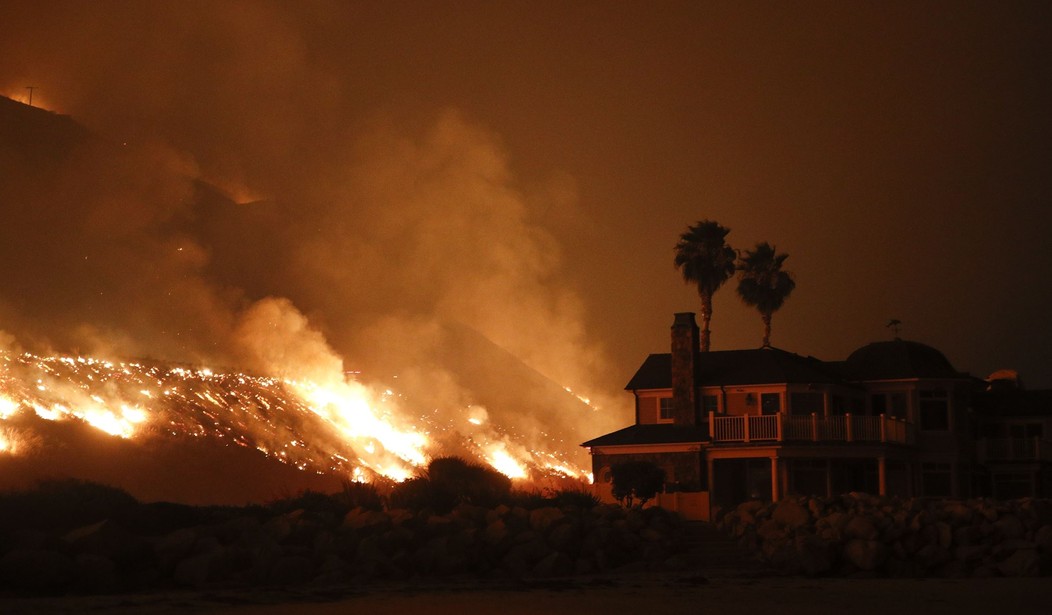A couple weeks ago I wrote about the problems in the California insurance market. Two of the largest home insurers in the state, State Farm and Allstate, have stopped selling insurance and another large insurer, Farmers, has put a limit on the amount of new business it will accept. In addition several smaller insurers have just abandoned the market.
The problem is that all of these companies are losing money in the state. A combination of rampant wildfires, rampant inflation and tight state regulations on price hikes has made it impossible for them to break even so they are just getting out. Yesterday, another major insurer announced new rules that, potentially, will make most Californians ineligible to buy insurance from the company.
As of 2022, USAA was the seventh-largest provider of homeowners insurance in California, according to the Insurance Information Institute, an industry group.
Starting in March 2024, four USAA companies plan to only sign new homeowners policies if the home in question has a wildfire risk score of 1 on a scale of 32, where a higher number signifies greater risk, according to the filing.
Previously, USAA had a different cutoff score for each county, but none of the scores were below 12.
According to a list published in the story, LA County and Orange County both scored a 16 from the company, making me think most homeowners in these areas will have a hard time scoring a 1 out of 32.
This new approach puts all of the emphasis on wildfires but companies could adjust for the risk if they were allowed to raise prices. In California they can’t do that without asking permission from a state agency. And under a law passed in 1988 any hike above 7% can be challenged by public interest groups. That means it’s expensive and difficult to get a hike of 28% like the one State Farm asked for earlier this year.
In addition to making life difficult for current homeowners, this is creating an even bigger problem for new homeowners who must have insurance before they can secure a mortgage.
With fewer insurers signing new policies, California homeowners are having a tough time finding coverage.
And because having insurance is generally required for getting a mortgage, the insurance problems make it more difficult for Californians to purchase homes.
If you can’t find an insurance plan to cover your home, you do have one option: The California Fair Access to Insurance Requirements (FAIR) Plan, a relatively bare-bones fire insurer of last resort that is funded by the insurance industry. It can’t turn you down, but it is significantly more expensive than market insurance.
Finally, Californians aren’t just struggling with property insurance. Car insurance is also becoming a problem in the state.
Auto insurance rates have been on the rise across the nation, as inflation has increased costs associated with auto accidents. But in California, motorists have been experiencing even bigger challenges as insurance companies have been reportedly limiting new policies and in some cases, may be ceasing to do business in the state altogether…
“A lot of companies are running a more than 100% loss ratio,” explained president of Oakland-based Barbary Insurance Brokerage Jerry Becerra. “So that’s unsustainable over the long-run.”…
American Agents Alliance said that the situation put the state at risk of having auto insurance companies opting not to do business in California.
“They are losing money on every piece of business, and ‘when you’re in a hole, stop digging’ is their approach to the marketplace in California right now,” Executive Director Mike D’Arelli told Money.com.
The media loves to talk about climate change driving the problem with homeowners’ insurance but climate change isn’t driving the problem with car insurance. The problem is inflation combined with strict regulation. Prices go up for everything, including car repairs, but insurers can’t raise premiums fast enough to to keep up. Eventually the hole gets deep enough that they just stop digging.








Join the conversation as a VIP Member